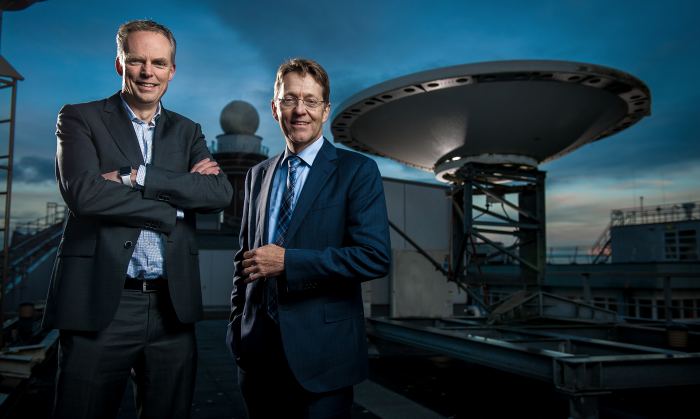With every game the Dutch team won during this summer’s UEFA Women’s EURO 2017, the more the Netherlands became gripped by women’s football. And when the thrilling final culminated in the Dutch team winning the European title, it caused a sensation throughout the country. Head coach Sarina Wiegman — widely praised as one of the architects of the Orange team’s success — is a believer in meticulous preparation and detailed scenarios. She has pragmatic views on team-building, Dutch openness, performance pressure and the importance of innovation
How old were you when you started playing football and when did you first think of becoming a manager?
“I’ve been playing since I was a young kid. There was no such thing as girls’ football back then, so when I joined the local football club at the age of 6, I just played along with the boys. I’ve always loved football and played for various Dutch clubs, as well as for the national team. I was one of the first Dutch female players to play abroad: I spent a year with the University of North Carolina at Chapel Hill. From a young age I knew I wanted a career that combined sport and working with people, for example as a physical education teacher. After I graduated from the Academy for Physical Education in The Hague I worked as a teacher for a number of years, but my main interest was in coaching and managing people. Before becoming head coach of the national team I spent two-and-a-half years as the assistant coach. Before that I was the head coach of the Dutch women’s premier league club ADO Den Haag for seven years. I have always viewed managing as a way of combining my love of the game with intensive group processes. I think it’s great to work with a group of people to try and take them to the next level.”
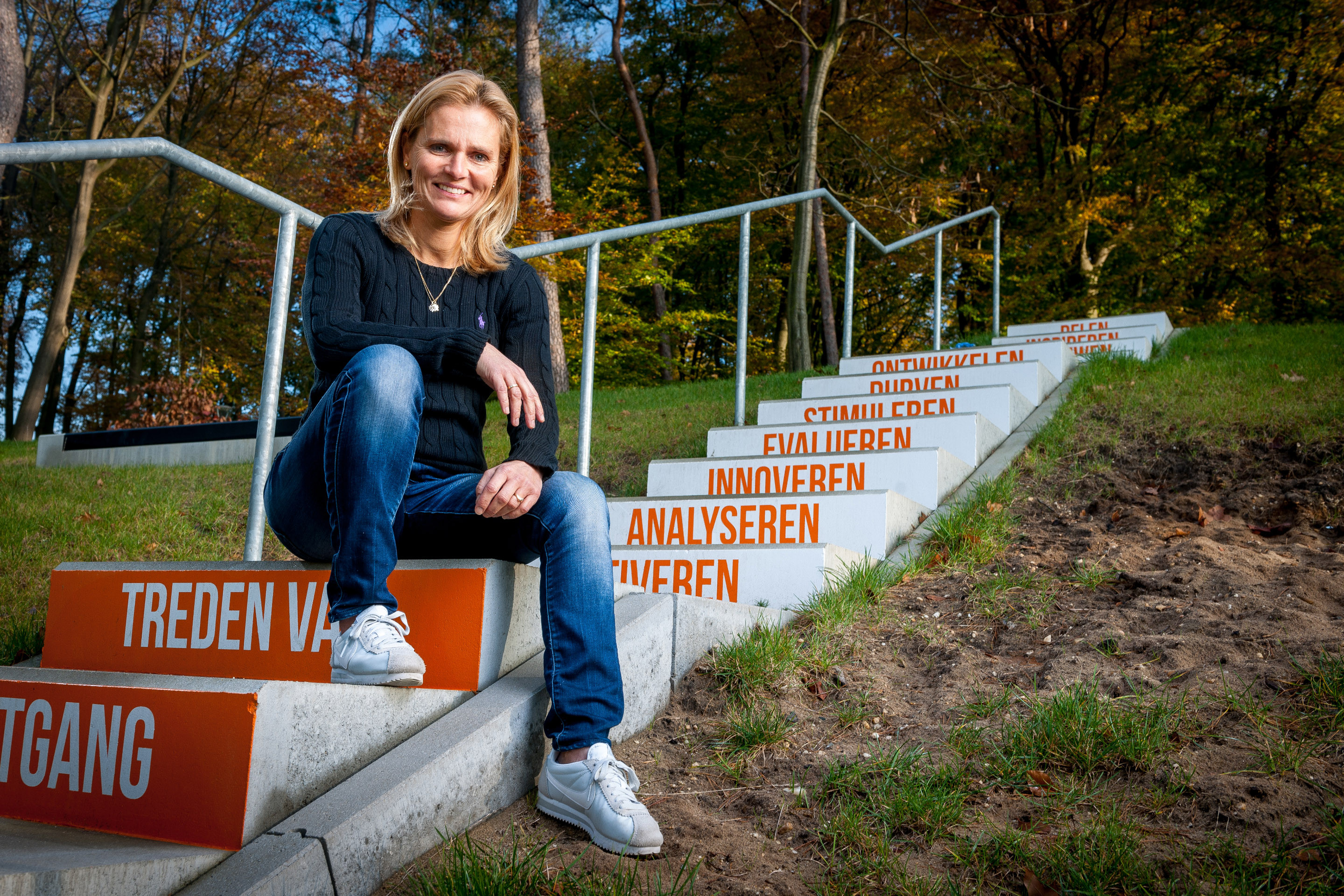
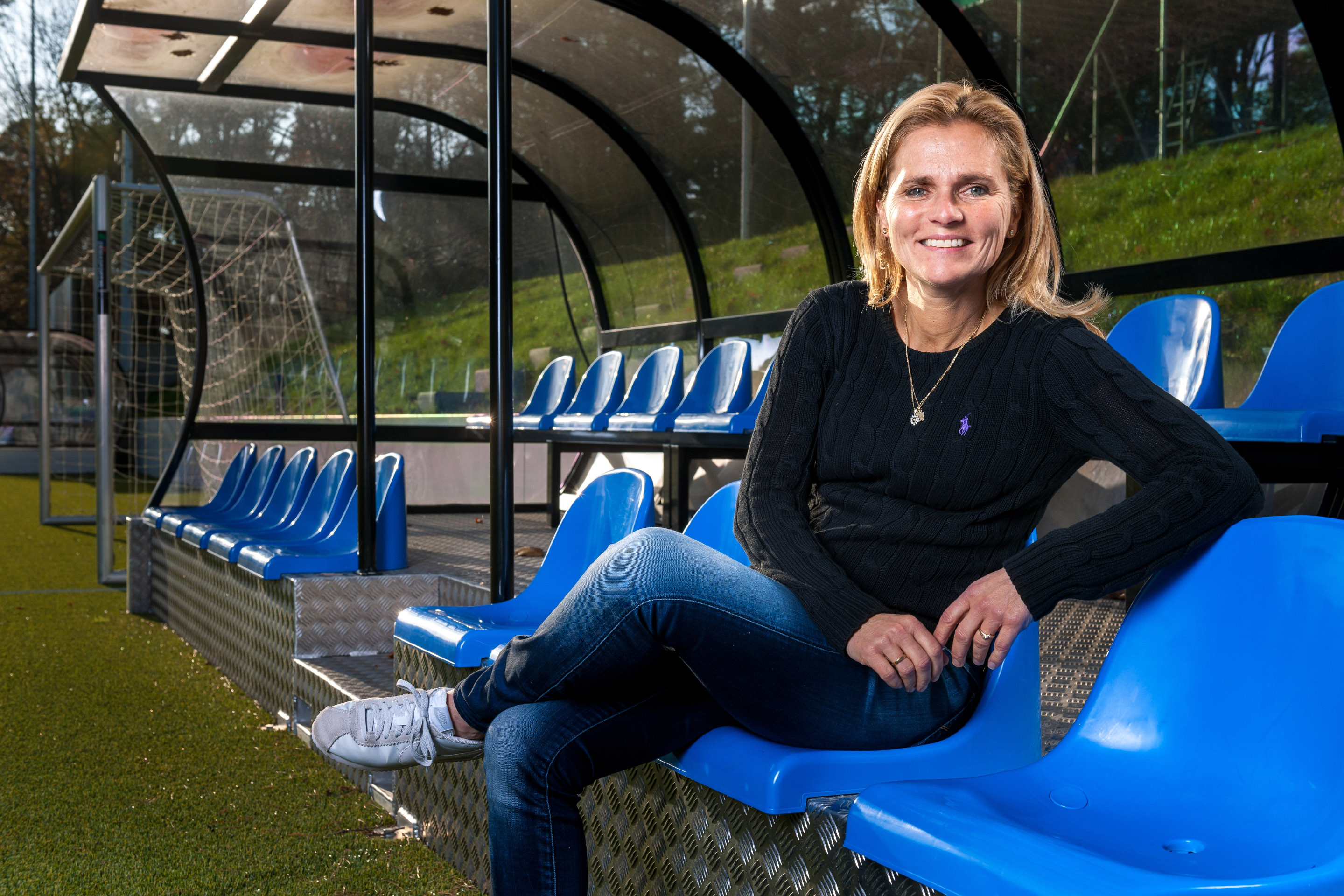
Unique experience
How did you experience winning the European Championship title?
“The morning of the Final I thought to myself: ‘How is this even possible? I’m the head coach of the Dutch national team and we have the chance to play in front of a sell-out crowd and innumerable cameras to show the whole of Europe who we are! Isn’t that incredible?’ And to think that not that long ago women’s football was barely on the map in the Netherlands. And then to go on and actually win that Final – that is a unique and irreplaceable experience. The whole country was behind us, everything was orange, everywhere people were cheering us on. Those were truly magical moments.”
You also suddenly gained a huge number of new fans. It seemed as if the success simply happened overnight, while in actual fact it was preceded by a long period of preparation. How did you experience that?
“This result certainly didn’t just fall into our laps. We have been working for years to get women’s football on the map in the Netherlands. The initial successes came when the Dutch national team qualified for the UEFA Women’s EURO 2009 in Finland and then for the EUROs in Sweden in 2013. Then in 2015 we qualified for the World Cup for the first time ever. Playing in major tournaments like that is crucial for gaining experience and reaching the next level for both the individual players and the team, as well as for the support staff. An important aspect of our success at this summer’s European championship was that the tournament was played on Dutch soil. It was a huge event, and that really shone a spotlight on our performance. We knew that this championship was a great opportunity to win the hearts of the public in the Netherlands – and hopefully beyond – and that’s what we managed to do. The way the team presented itself, both on and off the pitch, is something that we are all very proud of.”
Methodical approach
How did you prepare the players for EURO 2017?
“We opted for a methodical approach. When I took over as head coach in January 2017 my predecessors had already set out a course for the team process and developing the style of play. I stuck to the same course. But first I also took a little time to reconfirm the roles and responsibilities with the coaching staff and talk over our objectives. Next we discussed with the players how we were going to achieve our goal, and our expectations for the individual players and the team. In January, March, April and June the players were available to us for 10 days of the month. In addition, there were three, three-day training sessions and two, two-day training sessions, but club commitments meant that not everyone could attend all of these.”
What aspects did you spend most time on during the preparation phase?
“We discussed topics – both as a group and with individual players – such as ‘What do you need for a winning mindset?’ and ‘Does everyone accept the role they have to play?’ We listened carefully to each player’s opinion to make sure that everyone was behind the team. In addition we spent a lot of time on practical matters such as style of play, training methods and scenarios for technical situations such as set pieces, penalty taking, defending a lead, dealing with red cards and the loss of key players to injury. At the start of the official preparations on 2 July — two weeks before the tournament — we had already discussed all these scenarios in detail. That meant that everyone could focus entirely on the practical tasks.”
Winning mindset
You mentioned the term ‘winning mindset’, something that was clearly evident during the tournament. How do you achieve that?
“First of all by creating mutual trust and a safe climate, among both the squad and the coaching staff. Only if everyone feels safe will you get mutual understanding and acceptance. And this in turn creates space for positive feedback. If everyone is 100% willing to accept the role they have within the team and no criticism is left unsaid, then you get the solidarity that is needed to create a winning mood and deliver a top performance. We also took an example from the success and enthusiasm of the Dutch national women’s handball team (world championship finalist in 2015) and field hockey team (world champions in 2014 and Olympic finalist in 2016), and invited successful and inspiring sportspeople to share their experience and offer tips on playing a major tournament.”
Did technology play a role in this?
“Certainly, a major role actually. Being innovative and embracing new technology is an absolute must if you want to remain among the best in the world. During preparation we used various technological resources to give our players feedback during times when they were playing abroad. Our data analysts gathered footage of the players’ individual performances during training. So-called tracking data was then used to visualize all kinds of situations, such as the position of the players relative to one another and relative to the ball. By discussing these analyses with the players in one-on-one Skype sessions we were able to work on their personal development. This helped build trust and avoided anything remaining undiscussed.”
Do you treat individual players differently during preparation?
“No, everyone in the team is treated the same. In a training session a substitute player can contribute just as much as a key player of exceptional class, such as Lieke Martens. If every player is prepared to give her all and make an effort for one another, training is more effective and that boosts our competitive strength. You can only ask the players to get out of their comfort zone if there is genuine mutual trust. One of the specific aims of our training sessions was to teach players to deal with uncomfortable situations, to enable them to come up with their own practical solutions for them.”
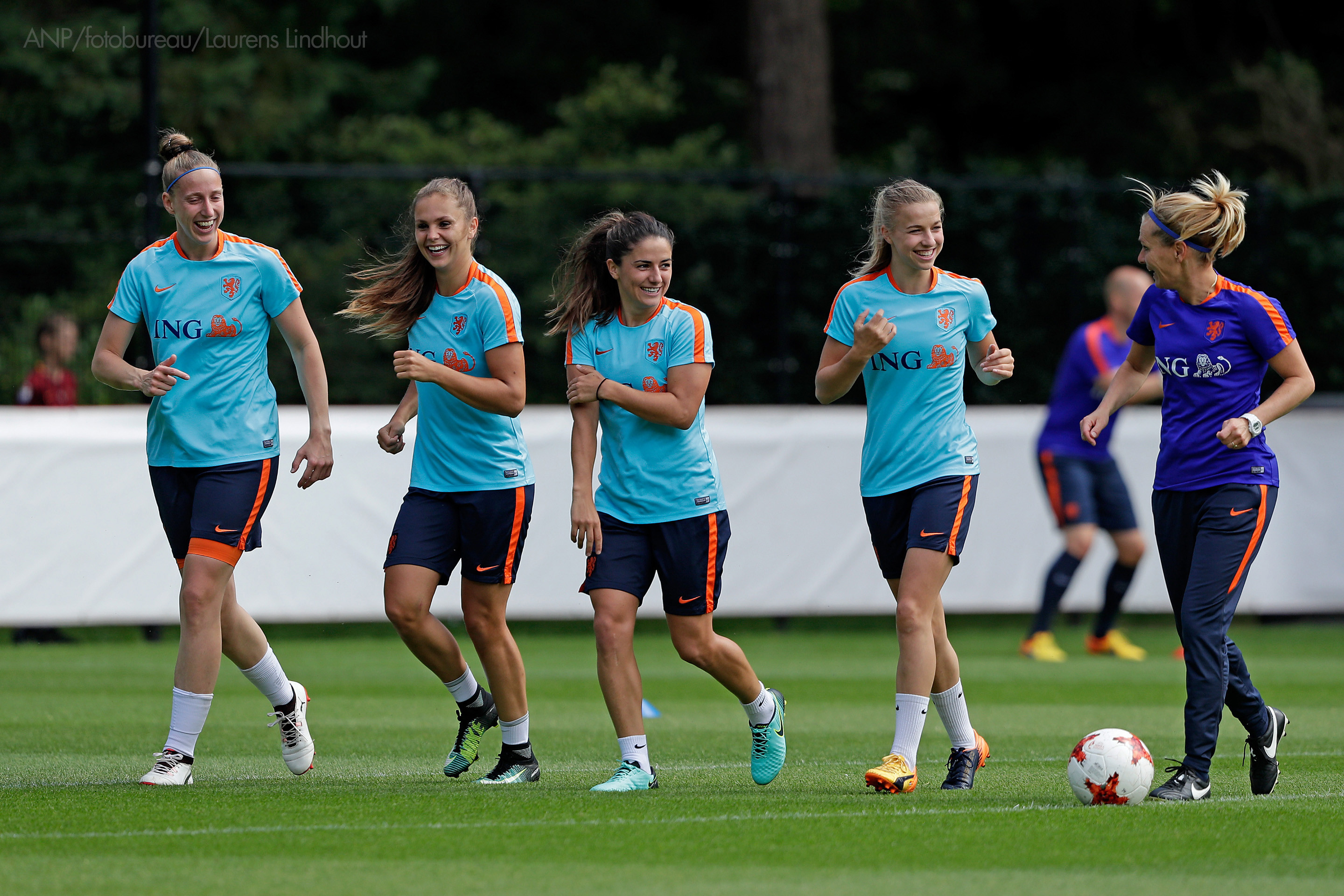
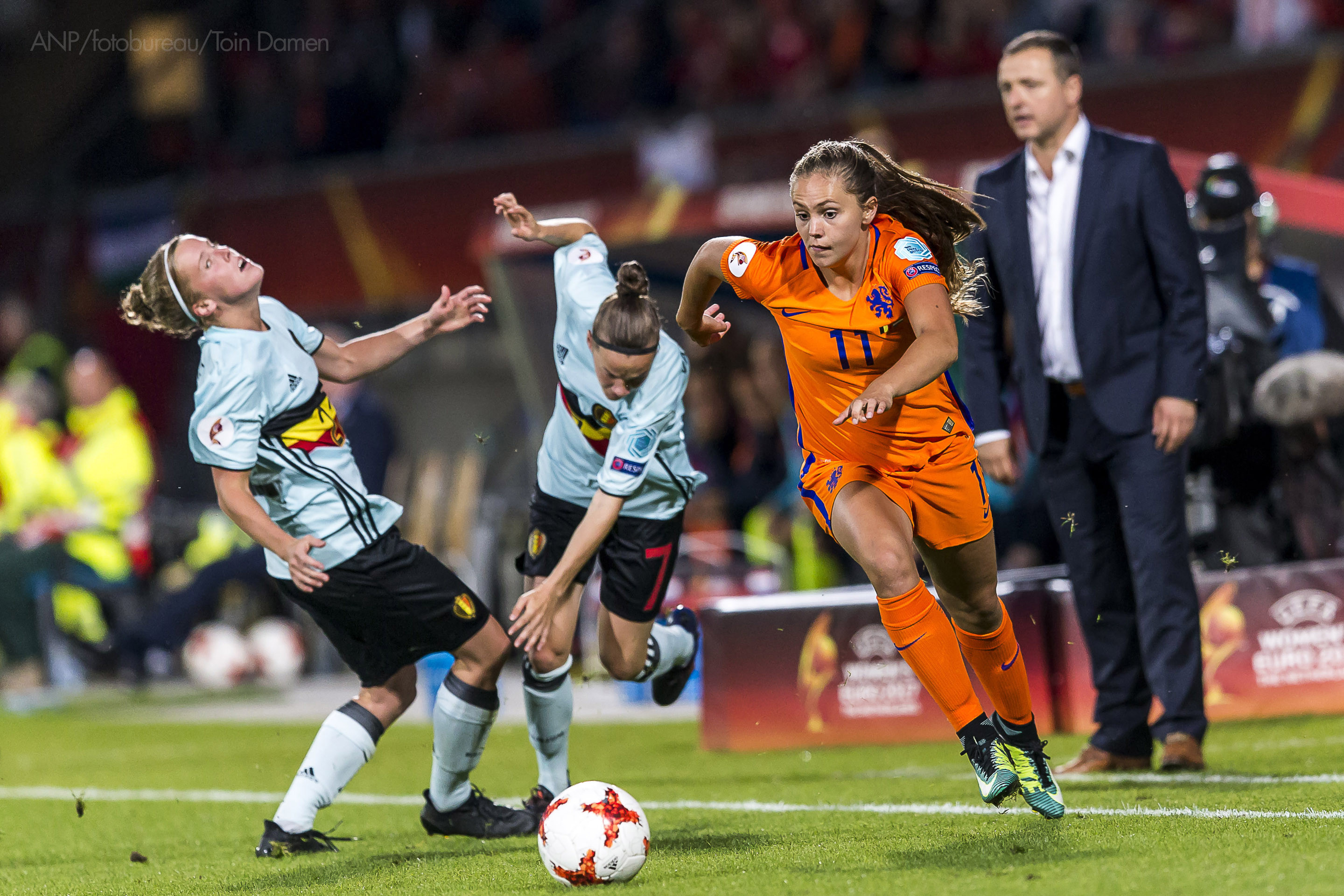
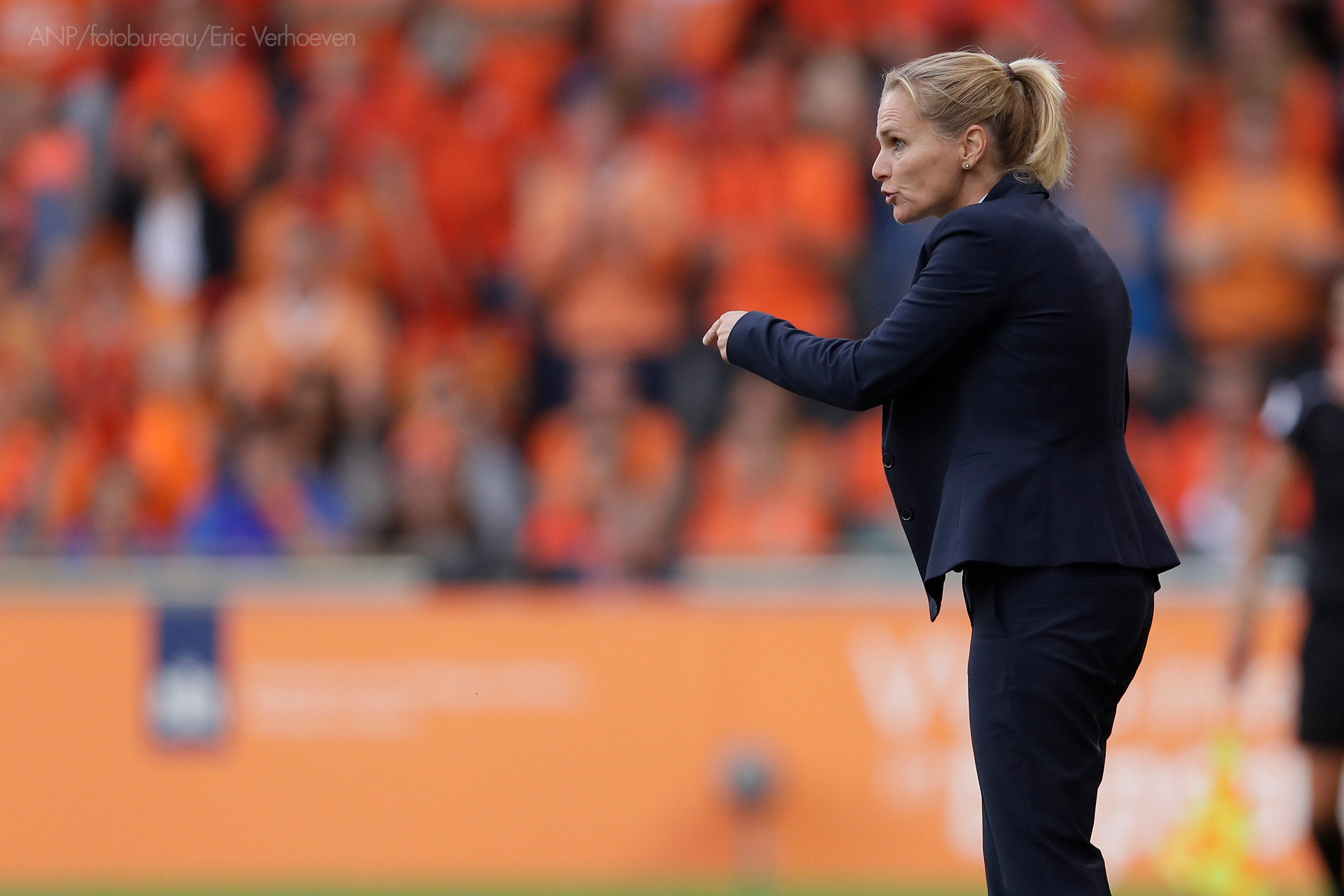
Clear objective
Terms such as ‘competitive strength’ seem to belong more to the world of business than to the game of football. Are there any lessons for businesses in your experiences in this tournament?
“I think it is important for businesses to set a clear objective and think about how you are going to get the employees on board. We went into this tournament with a clear vision: we wanted to capture the hearts of the nation, show that we are good at football and win as many matches as possible. Our subsequent coaching focused exclusively on execution and the tasks that go with that. During the tournament we made a conscious choice to keep contact with the outside world to a minimum. Some players even got a temporary phone to avoid being distracted by all the ‘white noise’ from outside. Constantly following the media can have a considerable negative impact on you. And so we really focused purely on our tasks and the physical training, and ignored the whole circus around it as much as we could. Our goal of capturing Dutch hearts was achieved early on in the tournament. From then on things could only get better. We were not focused on the result, but entirely on what needed to be done to deliver a great team performance. I think there is a parallel with the business world there. My advice would be: make sure you have a good division of tasks, that everyone really knows what their task is and is prepared to perform it to the best of their ability, and create an environment that feels safe and familiar to everyone.”
Critical mindset
By winning the European title the women’s team has put the Netherlands back on the map as a successful football nation. Are there any typically Dutch traits that are instrumental in this success?
“I see openness and a critical mindset as traits which are typically Dutch. In other countries you often see the coach explaining how he thinks that the team should be playing, and then the players following his instructions as a matter of course. To me the drawback of this is that the players don’t learn very much from it. That is a flaw, because at the end of the day the players will have to make their own choices during a game, and more than anything they need to know what options they have in unexpected game situations. Many Dutch sportspeople are critical and challenge all kinds of things, but at the same time they are prepared to take responsibility for their own actions. As a coach I am constantly looking at what can be improved. To achieve this I ask the players to give an honest opinion, without judging them for it. We don’t take the players by the hand with strict instructions because that doesn’t help them grow. The players are largely responsible for their own development. It is a matter of helping them make the right choices and draw their own conclusions.”
An audience with the King, massive celebrations and acclamations, royal honors, named the world’s Best FIFA Women’s Coach… expectations are practically off the scale now. How do you deal with that kind of pressure?
“Yes, since winning the European title the pressure has increased considerably. We have gone from underdog to favorite. We are now the team to beat, and that means raising the bar even further. In any case we are going to put a lot of effort into managing expectations, because we’ve only taken part in the World Cup once. Other than that we can promise only one thing and that is that we will continue to give our all and to work together well.”
Referring to this magazine’s title, what horizons would you still like to create?
“Speaking purely for myself: I want to continue my development and keep on learning new things, and I now have a whole lot more interesting possibilities to do so. Apart from that it goes without saying that I hope to enjoy many more successes with the Dutch women’s team. First we have to qualify for the World Cup in 2019. And we’ll need to do well there because the three best European teams will go on to play at the Olympic Games in Japan in 2020. This seems like a great new horizon to me!”
